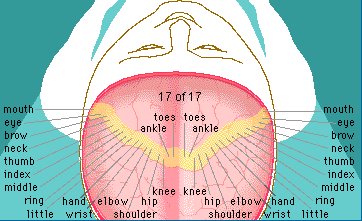Post Traumatic Stress Disorder Research
Urine Testing
Reveals low levels of cortisol which "suggests a physiological adaptation of the hypothalamic-pituitary-adrenal axis to chronic stress."
J Nerv Ment Dis 1990 Jun;178(6):366-
Low urinary cortisol excretion in Holocaust survivors with posttraumatic stress disorder compared to Holocaust survivors without ptsd. Personally I had a difficult time imagining a survivor of the Holocaust without PTSD.
"...low cortisol levels may persist for decades following exposure to trauma among individuals with chronic PTSD."
Am J Psychiatry. 1996 Jun;153(6):846.
"Increased 24-hour urinary cortisol excretion in patients with post-traumatic stress disorder and patients with major depression, but not in patients with fibromyalgia."
Acta Psychiatr Scand 1998 Oct;98(4):328-35
The results of our study suggest that initial cortisol levels in the immediate aftermath of a traumatic event contribute, in part, to subsequent symptoms of posttraumatic stress disorder.
Biol Psychiatry 2000 Nov 1;48(9):940-7
Behavioral Therapy
CBT: Cognitive Behavior Therapy
Open-label trial of cognitive behavior therapy for insomnia and disturbing dreams in crime victims with PTSD. There was significantly greater improvement.
Am J Psychiatry 2001 Dec;158(12):2043-7
Cognitive-behavior therapy vs exposure therapy in the treatment of PTSD in refugees. Both forms of therapy were provided and they were equally very helpful in reducing anxiety and depression in the PTSD refugees.
Behav Res Ther 2001 Oct;39(10):1183-97
Virtual Reality Exposure Therapy for Vietnam Vets
Virtual reality exposure therapy for Vietnam veterans with posttraumatic stress disorder. Study revealed this form of therapy is very successful in treating Vietnam veterans.
J Clin Psychiatry 2001 Aug;62(8):617-22
Imagery Rehearsal Therapy
"Imagery rehearsal therapy for chronic nightmares in sexual assault survivors with posttraumatic stress disorder: a randomized controlled trial... Imagery rehearsal therapy is a brief, well-tolerated treatment that appears to decrease chronic nightmares, improve sleep quality, and decrease PTSD symptom severity."
JAMA. 2001 Aug 1;286(5):584-8.
EMDR
Eye movement desensitization and reprocessing (EMDR): a meta-analysis.
This article reveals that EMDR was evaluated in 34 studies and it was found to be an effective treatment for non-combat PTSD but it no more effective than other exposure techniques "and evidence suggests that the eye movements integral to the treatment, and to its name, are unnecessary."
J Consult Clin Psychol 2001 Apr;69(2):305-16
Drug Therapy
Efficacy and safety of paroxetine treatment for chronic PTSD: a fixed-dose, placebo-controlled study.
"Doses of 20 and 40 mg/day of paroxetine are effective and well tolerated in the treatment of adults with chronic PTSD."
Am J Psychiatry 2001 Dec;158(12):1982-8
Efficacy of sertraline in preventing relapse of posttraumatic stress disorder: results of a 28-week double-blind, placebo-controlled study.
The study showed that sertraline did provide protection against relapse and provided evidence of improvement in PTSD symptoms.
Am J Psychiatry. 2001 Dec;158(12):1974-81.
Topiramate in posttraumatic stress disorder: preliminary clinical observations.
Topiramate was tested on 3 PTSD patients and it reduced and even eliminated "trauma-related intrusive memories and nightmares and normalizing depressed mood" in these patients. The study says that further study of this anti-epileptic medication for PTSD is warrented.
J Clin Psychiatry 2001;62 Suppl 17:60-3
Chemical Dependency
"An estimated 30% to 50% of cocaine-dependent individuals meet criteria for lifetime PTSD."
J Subst Abuse Treat 2001 Jul;21(1):35-45
More to Come!
http://www.mhsanctuary.com/ptsd/research.htm
Monday, August 27, 2007
Subscribe to:
Post Comments (Atom)

http://www.windyweb.com/stop.htm














No comments:
Post a Comment